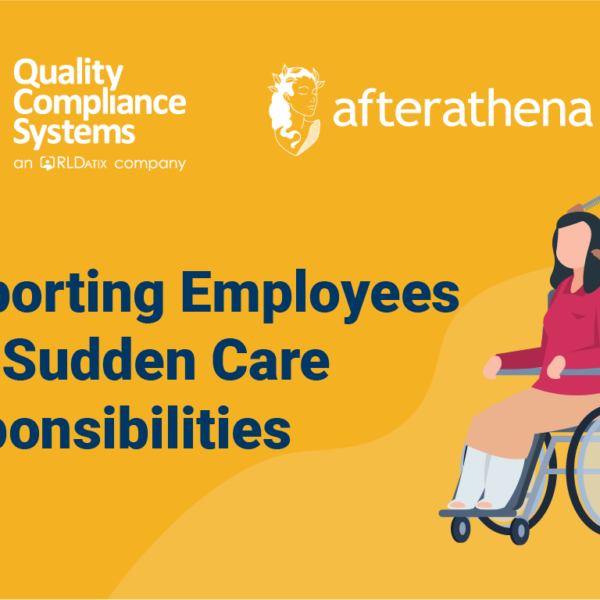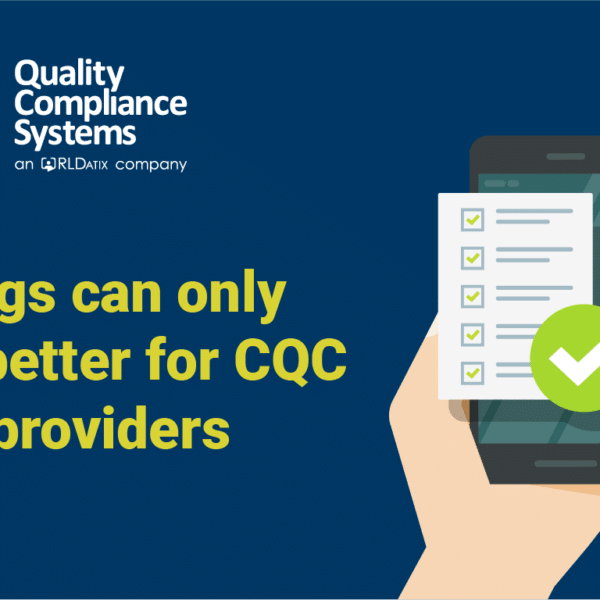In today’s dynamic workplace, employees can face an array of personal challenges that could significantly impact their work. One of the challenges is the sudden onset of caring responsibilities for elderly parents or other family members.
As demographics shift and life expectancy increases, more employees find themselves balancing the complexities of care responsibilities while trying to meet their work commitments. For employers, understanding and addressing these pressures are crucial to adopting a supportive workplace.
The impact of sudden care responsibilities on employees
The responsibility of caring for elderly parents or family members can arise unexpectedly, often due to sudden illness, injury, or cognitive decline. This abrupt transition can impose significant emotional, financial, and logistical burdens on employees, affecting their overall well-being and productivity. From emotional strain and financial pressures to the logistical challenges of co-ordinating medical appointments, as well as trying to juggle childcare and maintain a work-life balance.
Addressing these challenges
Managers and supervisors play a pivotal role in supporting employees facing sudden care responsibilities. By implementing proactive strategies and promoting a culture of empathy and flexibility, managers can help to reduce the impact of care responsibilities on employees and promote a supportive workplace environment:
- Flexible Work Arrangements: Offering flexible work arrangements, whether this be temporary or permanent, enables employees to better manage their home responsibilities while fulfilling their duties. By accommodating individual needs and schedules, organisations demonstrate their commitment to employee welfare. Consideration should also be given to The Equality Act 2010 which states that you must not be discriminated against because you are connected to someone with a disability (this is known as discrimination by association) therefore, we would always recommend seeking legal advice in these situations.
- Carers Leave: In addition to being mindful of the above, employers should also note that The Carers Leave Regulations 2024 came into force on 6th April 2024, which now allows employees to request up to one week of unpaid Carers Leave in any 12-month period. This is a day one right and applies to employees who have a dependant with a long-term care need. If not already in place, employers should consider implementing a Carers Leave Policy.
- Employee Assistance Programs (EAPs): Providing access to EAPs equips employees with valuable resources and support services to address emotional, financial, and logistical challenges associated with care responsibilities. EAPs offer counselling, legal advice, financial planning, and care support groups, empowering employees to navigate their responsibilities more effectively.
- Training and Education: Equipping managers with training on care awareness and sensitivity nurtures a culture of understanding and support. By raising awareness of the challenges faced by carers, organisations can cultivate empathy and encourage colleagues to offer assistance and accommodation where possible.
- Annual Leave Policies and Benefits: Reviewing and enhancing policies to include paid carers leave, compassionate leave, or flexible use of accrued paid time off allows employees to tend to their care responsibilities without fear of repercussions. Additionally, offering access to healthcare benefits, and carers support services could ease the burden on employees and enhance their ability to manage their duties effectively.
- Peer Support: Establishing peer support networks or employee resource groups for carers creates a forum for sharing experiences, exchanging advice, and offering mutual support. Connecting employees with peers facing similar challenges can promote a sense of community and solidarity, reducing feelings of isolation and stress.
- Mental Health First Aiders: Having mental health first aiders within a business is invaluable. These trained individuals serve as empathetic and knowledgeable resources, capable of providing immediate support and guidance to colleagues facing mental health challenges. Their presence helps cultivate a culture of understanding and support, reducing stigma surrounding mental health issues. In situations where employees are suddenly burdened with care responsibilities, mental health first aiders can offer vital assistance, helping to alleviate stress and providing resources for coping mechanisms.
Conclusion
The pressures associated with suddenly assuming care responsibilities for elderly parents or other family members pose significant challenges for employees, impacting their emotional well-being, financial stability, and work-life balance.
By implementing proactive policies, providing supportive resources, and encouraging a culture of empathy and flexibility, businesses can empower employees to navigate their care responsibilities while maintaining their work commitments. In doing so, organisations not only support their employees’ well-being, but also encourage a culture of compassion that enhances overall workplace morale and productivity.
If you have any queries in relation to employees with caring responsibilities or are in need of specific advice in relation to any Employment Law matter, please contact a member of the AfterAthena team (part of the Napthens Group) who are able to offer 30 minutes of free advice to QCS members.
Filter Posts:










